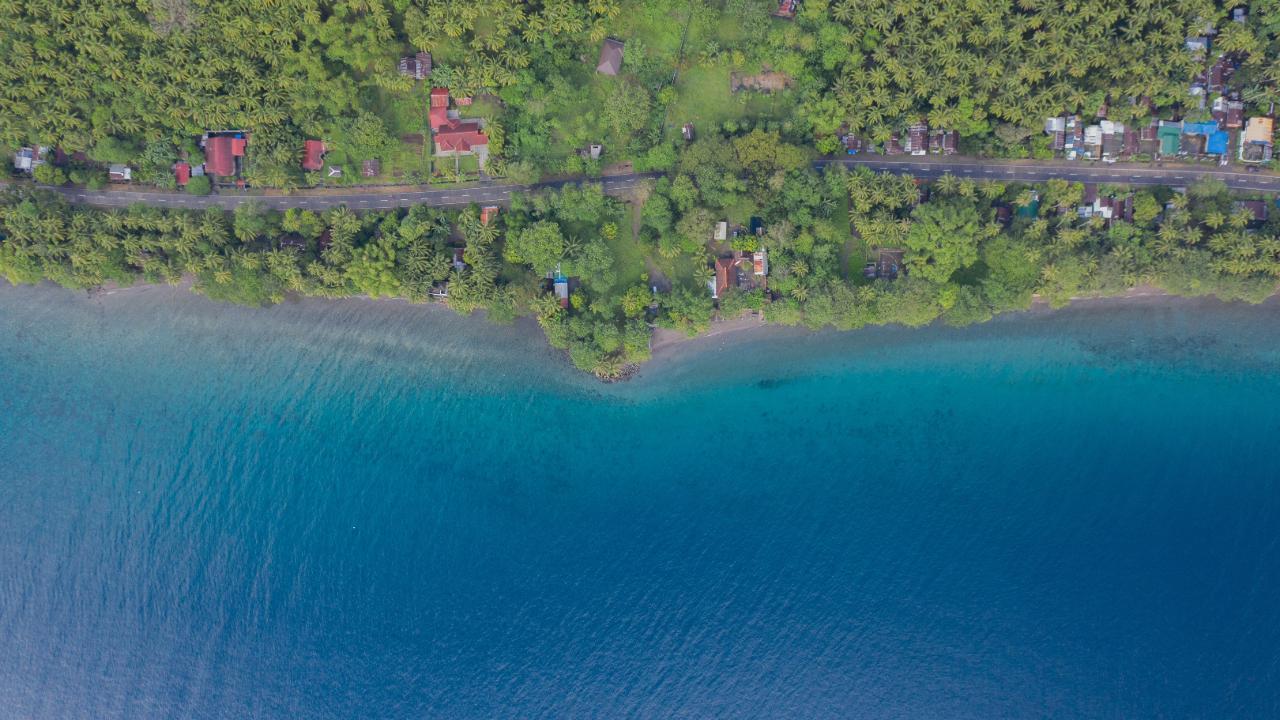You have not yet added any article to your bookmarks!

Join 10k+ people to get notified about new posts, news and tips.
Do not worry we don't spam!

Post by : Anis Farhan
Photo: Freepik
From Asia to America, the waterline is rising. In Jakarta, one of the fastest-sinking cities in the world, the government has already begun shifting its administrative capital to Nusantara, 1,200 kilometers inland — an unprecedented move meant to dodge climate doom. Meanwhile, in New Zealand, low-lying towns like South Dunedin are considering relocation due to recurrent flooding.
In the United States, the story is quietly repeating. Miami Beach has pumped billions into sea walls and drainage, but experts say it's delaying the inevitable. Small island nations like Kiribati and Tuvalu are already preparing their citizens to live elsewhere — not as evacuees, but as climate migrants.
What’s scary isn’t just that places are going under. It’s that governments know it, and they’re preparing to leave. Entire cities aren’t waiting for the sea to come. They’re already planning the exit.
Relocation isn’t as simple as moving homes. Imagine shifting water pipelines, telecom infrastructure, power grids, highways, schools, and hospitals — all while maintaining social order. In Indonesia, moving the capital is estimated to cost over $32 billion, and that’s without factoring in cultural displacement.
In many countries, the government isn’t even paying. In Louisiana, residents of Isle de Jean Charles — one of America’s first officially designated “climate migrant” zones — were offered relocation packages by federal programs. But the emotional toll of leaving ancestral land is often too heavy. Less than half agreed to move.
In the developing world, the situation is far worse. Countries like Bangladesh, Mozambique, and Vietnam face the twin burden of recurring floods and limited funds. With no major safety nets, climate migration in these areas isn’t structured or dignified — it’s chaotic and tragic. International funding is trickling in, but at nowhere near the scale needed. The world is on the move, but no one’s paying the relocation bill.
When people migrate due to climate change, they don’t just lose homes — they lose their past. Fishing communities in Bangladesh that have thrived for generations now find themselves landlocked and unemployed. Farmers in the Mekong Delta, once reliant on freshwater access, are abandoning their fields due to saltwater intrusion. This isn’t just about losing property — it’s about losing purpose.
Culture, tradition, and heritage are all entangled with geography. When geography vanishes, identity goes with it. Children growing up in temporary shelters or relocated townships don’t have the same community ties or ancestral grounding. They inherit uncertainty. Even the words we use — “climate refugees,” “managed retreat,” “displacement” — carry weight, stigma, and psychological scars.
As more cities become unlivable, millions will experience this silent erasure. And unlike refugees from war or famine, climate migrants often have nowhere specific to run — because the problem isn’t a place. It’s the planet.
The UN International Organization for Migration estimates that by 2050, 1.2 billion people could be displaced due to climate-related causes. Many will move within borders, but even domestic migration will reshape global stability. Urban centers will become crowded, resources stretched, and social services overwhelmed. We’re already seeing hints — from droughts pushing villagers into megacities in India, to wildfires in Canada displacing tens of thousands.
Yet, the global conversation is alarmingly quiet. Climate migration still lacks a legal definition under most international refugee laws. There’s no structured protection, no uniform policy, and no mass preparedness plan. It’s happening in slow motion — which makes it easier to ignore, until it’s not.
Governments aren’t planning if people will move — they’re now calculating when, where, and how to fund it. And without intervention, this could become the greatest human rights crisis of our time.
Climate migration isn’t a buzzword or a future possibility. It’s a present-day reality reshaping nations, economies, and lives. The challenge isn’t just environmental — it’s moral. How we respond today will determine not only where people live tomorrow, but whether they live with dignity, stability, and hope.
This content is intended for informational and editorial purposes only. All facts, interpretations, and insights are presented in good faith based on publicly available sources and current global developments. Newsible Asia does not endorse or promote any particular viewpoint or agenda expressed herein.










Dalal Street Spotlight: Top 10 Stocks Investors Are Watching as Markets Open on a High
Indian stock markets begin the week with strong momentum, and several blue-chip and mid-cap stocks a

Market Movers Today: Key Stocks Set To Watch In Indian Markets
Indian equity markets are poised for active trading as several major companies, including Bharti Air

Milan Welcomes the World: Inside the Grand Opening Ceremony of the 2026 Winter Olympics
The 2026 Winter Olympics opening ceremony in Milan marked a defining moment for global sport, blendi

Unfolding Market Drama: Sensex & Nifty Trade Volatility Amid Budget Fallout and India-US Trade Breakthrough
Indian equity markets exhibited high volatility this week as the 2026 Union Budget triggered sharp s

Dhurandhar 2 Teaser Countdown Ignites Fan Frenzy: All You Need to Know
The highly anticipated sequel to the blockbuster Dhurandhar is building intense excitement as the Dh

Vietnam Overtakes Thailand as Top Choice for Chinese Tourists
Vietnam has quietly surpassed Thailand as the favorite destination for Chinese tourists in 2025.